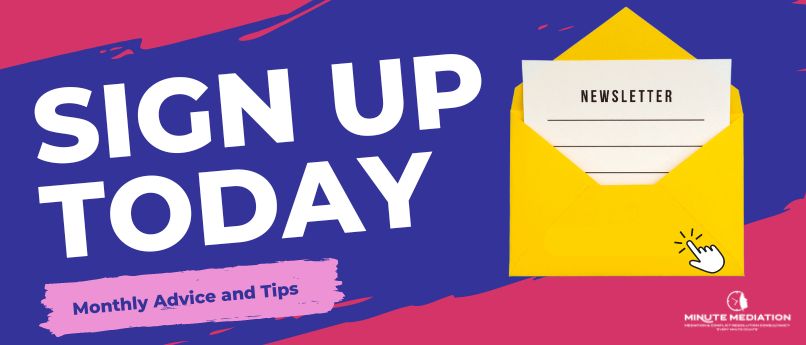Turning Battles into Bridges: The Interplay of Conflict and Decision-Making
In the myriad interactions that make up human life, conflict is a recurring theme. It is an omnipresent aspect, surfacing in various areas of life—personal, professional, or social. On the other hand, decision-making is an integral cognitive process resulting in the selection of a course of action from a pool of alternatives. The confluence of these two aspects gives rise to fascinating dynamics. The focus of this article is to delve deeper into how conflict affects our decision-making process and to shed light on ways to leverage this interaction constructively.
Defining Conflict
Conflict can manifest in several forms, from internal struggles we grapple with to disagreements within a team, from contentious national policies to divergent global ideologies. At its core, conflict stems from differences — differences in beliefs, values, attitudes, or perceptions. These differences could give rise to personal conflict, such as divergent opinions within a family or friendship, or professional conflict, such as disparate views on organizational strategies, business operations, or group dynamics. Although often depicted as a destructive force, conflict, when navigated skilfully, can catalyse productive discussions, innovative solutions, and collective growth.
Conflict’s Impact on Decision-Making
-
Inducing Cognitive Dissonance
Cognitive dissonance, a psychological theory proposed by Leon Festinger, suggests that people are innately driven to establish and maintain consistency among their beliefs, values, and attitudes. The emergence of conflict disrupts this equilibrium, instigating a sense of discomfort. To alleviate this discomfort, people may modify their decision-making process. This modification could involve changing their perspectives to align with the conflicting information or, on the contrary, attempting to discredit or downplay the conflicting source.
2. Stimulating Critical Thinking
Contrary to popular belief, conflict is not unequivocally detrimental. In certain scenarios, it can serve as a catalyst for critical thinking, coaxing individuals to delve deeper into the issues at hand. When various viewpoints clash, they often necessitate a thorough exploration and examination of the problem. This exploration consequently results in more well-rounded decision-making, as multiple aspects, perspectives, and potential consequences are taken into account.
3. Encouraging Compromise
Conflict, in many instances, necessitates compromise within the decision-making process. Stakeholders may need to find common ground or make concessions to facilitate an agreement. This situation calls for an empathetic and considerate decision-making approach, focusing on solutions that are mutually beneficial or, at the very least, minimally disruptive for all parties involved.
4. Hindering Decisions due to Stress and Anxiety
Conflict often incites feelings of stress and anxiety, which can significantly impede decision-making capabilities. Under extreme stress, individuals may resort to hasty or emotionally charged decisions, failing to consider all pertinent factors and potential repercussions. Moreover, some may adopt an avoidance approach, postponing decisions to evade the discomfort associated with conflict.
5. Enhancing Creative Problem-Solving
Conflict, in some cases, can stimulate creativity by forcing individuals or groups to consider different perspectives and possibilities, fostering innovation and diverse problem-solving approaches. This can result in more robust decisions that not only address the immediate issue but also yield long-term benefits.
Constructively Harnessing Conflict in Decision Making
While the influence of conflict on decision-making can be substantial and profound, understanding its dynamics enables us to navigate it effectively and harness it constructively. Here are a few strategies to leverage conflict and enhance the decision-making process:
Promote Open Communication: Encourage all parties involved to express their perspectives openly. This level of openness fosters mutual understanding and respect among individuals or team members, even when disagreements surface.
Encourage Active Listening: Active listening is an effective tool to fully comprehend others’ viewpoints and respond empathetically. This practice can reduce the negative impacts of conflict on decision-making and promote more thoughtful and informed discussions.
Implement Conflict Management Strategies: Conflict management training, mediation, and structured decision-making procedures can play a crucial role in managing conflict and promoting effective decision-making. These strategies ensure that all voices are heard and valued, fostering a more inclusive and comprehensive decision-making process.
Practice Emotional Intelligence: The role of emotional intelligence in conflict situations cannot be overstated. Understanding and managing one’s emotions, as well as being attuned to others’ emotional states, can mitigate the adverse effects of stress and anxiety incited by conflict. This emotional competency promotes more rational, balanced, and inclusive decision-making.
Cultivate a Culture of Respect and Inclusion: Cultivating a culture where all perspectives are valued and respected can ease the navigation of conflicts and foster productive, informed decision-making. When individuals feel heard and included, they are more likely to contribute constructively to discussions, ultimately leading to more effective decisions.
In conclusion, while conflict can undoubtedly pose challenges, it also presents opportunities for growth and learning. Understanding and leveraging the influence of conflict can foster healthier, more comprehensive decision-making processes and outcomes. By recognising conflict as an opportunity rather than a hindrance, we can not only navigate personal and professional challenges more effectively but also contribute to collective growth and success.
WHO ARE MINUTE MEDIATION?
Mediation has undoubtedly become an evolving reality today. The demand for trusted mediators has also been rapidly increasing. So, if you are also struggling with a dispute due to a conflict situation in your workplace or community don’t panic anymore.
Minute Mediation Ltd is experienced in facilitating disputes and finding the best possible solutions to help you and your partners find common ground and resolve issues.
So what is the wait for?
Get in touch with us because every minute counts!
Click here for a free 15 minute consultation


